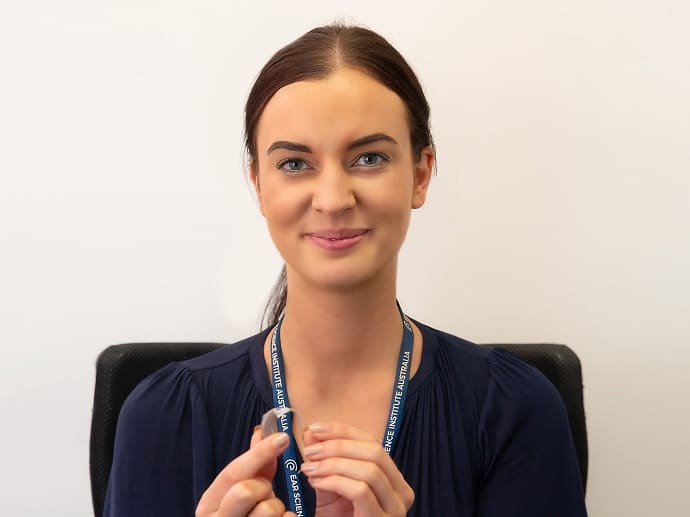Classic Ménière’s disease involves a combination of symptoms; recurrent
vertigo attacks, fluctuating low frequency hearing loss, fullness or pressure in
the ear and tinnitus

Generally a person would exhibit at least three of these symptoms in order to be given a diagnosis of
Ménière’s disease. Vertigo attacks caused by Ménière’s disease last at least 20 minutes, but more commonly between two and four hours.
Surroundings may appear to spin and the person would be unable to walk in a straight line. Attacks may be associated with nausea, vomiting and diarrhoea.
In the early stages of Ménière’s disease, the hearing loss will often improve between attacks, whereas in the advanced stages of Ménière’s disease the hearing loss may become severe or progressive and may fail to recover between attack.
Prevalence
The prevalence and incidence of Ménière’s disease in Australia is unknown but it is estimated that about 40,000 Australians are affected. Symptoms most commonly begin when people are in their 30s and it is rare for symptoms to begin after the age of 60. In around 40% of cases Ménière’s disease progresses to affect both ears.
Causes of Ménière’s disease
The cause of Ménière’s disease is not well understood, however it is known to be associated with endolymphatic hydrops. Endolymph is a fluid contained within the inner ear. In endolymphatic hydrops the endolymph accumulates and causes a swelling. The swelling is thought to be due to a dysfunction in the production or absorption of the endolymph.
Diagnosis
There is no definitive diagnostic test for Ménière’s disease. It is diagnosed clinically based on the patient’s symptoms and by conducting tests to support the diagnosis and to rule out other possible causes of the symptoms.
If the patient is experiencing recurrent episodic vertigo, unilateral tinnitus, low frequency fluctuating hearing loss and/or aural fullness, then a diagnosis of Ménière’s disease should be considered. An accurate history is therefore vital in assisting with the diagnosis, so a diary of symptoms is encouraged to record:
- How often attacks occur
- How long they last
- What symptoms were involved
Exacerbating factors.
In considering a diagnosis of Ménière’s disease the specialist may request a full vestibular (balance) assessment to investigate other possible explanations for the symptoms.
Other tests may also be requested to rule out different causes for the symptoms. These may include blood tests, auditory brainstem responses, CT or MRI scans.
Management
There is evidence that certain lifestyle factors can exacerbate Ménière’s disease. These include stress, smoking, excessive salt intake, alcohol and caffeine. Reducing these factors is often the first treatment option. Medications may be prescribed to ease the most distressing symptoms of Ménière’s disease. These may include vestibular suppressants to try to reduce the severity of vertigo attacks and antiemetic medications to reduce nausea and vomiting during the attacks. However, these medications only help with the symptoms, they will not address the underlying cause.
Other medical treatments may be prescribed including diuretics, corticosteroid injections or betahistine.
If there is a poor response to these treatments and symptoms become intolerable, an ENT surgeon may consider destroying any remaining vestibular function on the affected side surgically or by gentamicin injections into the inner ear.
It takes time for someone to readjust following a change in vestibular function, most people report veering towards the weaker side and feeling off balance for several weeks or months.
If the patient remains active and is not taking vestibular sedatives the brain gradually compensates for this change in function. A physiotherapist-trained in Vestibular Rehabilitation can provide individual exercises and advice to speed up the recovery process. If there is a fluctuating hearing loss present then hearing aids with multiple memories and a manual volume control is recommended. Additionally, people who experience tinnitus and hearing loss often find that hearing aids can reduce their awareness of the tinnitus, by bringing more external sound into the auditory system.
Further information
Ménière’s Australia: http://www.menieres.org.au


